Once I could laugh with everyone
Once I could see the good in me
The black and the white distinctively
Colouring
Holding the world inside
Now, all the world is grey to me
Nobody can see
You gotta believe it!
Songwriter: Brian May
Martyn Bradbury, aka Bomber, a workingman’s flat cap and a beard ripe for socialism. Love him or loathe him, he’s an icon of political blogging and left-wing politics.
You can put me down for the former. As I’ve mentioned before, I’ve known the old bugger since I was at Uni, and he was the editor of the student magazine, Craccum. I’ve read or heard so many of his words over the years that they must be part of my DNA, which isn’t to say that he doesn’t piss me off sometimes.
Usually, it’s when he’s attacking the Greens for being too woke and focusing too much on identity politics—hey, we don’t like to hear someone having a go at our team, right? But it is well-meaning.
Like when I have a go at the Labour Party for sitting on the fence for too long on the issue of a Capital Gains Tax. It’s not that I think badly of them or the people involved; I want them to do better. On top of that if we don’t criticise our own side, then what's the point? And how do we ever expect to reach beyond our bubble?
Somewhere along the line, Bomber and I started swapping occasional messages like “Happy Birthday, Comrade” or “OMG, did you see this?” A week ago, he sent me a link - Treaty of Waitangi debate on as David Seymour takes up Ngāti Toa leader Helmut Modlik’s challenge.
As I said to Mr Modlik last night after the debate, as we waited to be let out of the building - “it’s a debate we have to have about a debate nobody wants,” which is not entirely accurate; one bloke certainly wants it, and it’s rather jumping ahead.
A couple of days later, Bomber sent another link about the debate, this time from RNZ. Clearly, momentum was building. I messaged back, “Great, I'll definitely cover the debate and am happy to publicise it. Maybe Damien could stay home that day? 😉”
The next message was an invite to be a member of the media and come along to the studio to watch it and then write it up.
So there I was, getting out of my car outside MediaWorks last night. I was early as traffic was light, and up came Bomber beaming. I commented that it’d been about 30 years since we’d actually met face-to-face. He introduced me to his daughter, who was with him and would be helping that evening, taking us through to the studio.
Duncan Garner hurried by, looking like he was late for a tea party. We went inside and had a chat. Bomber can come across as full of bombast and outrage, but he is a lovely man one-on-one. I know he pisses some folks off, but seriously, if he weren’t rustling a few feathers, he wouldn’t be doing his job.
Damien Grant was next to arrive, and we were introduced. Where do you start with Mr Grant? Most people start with his convictions, but how dull is that? Of all the things that worry me about that man, it’s surely not what he did all those years ago. How bloody tiresome it must be for him.
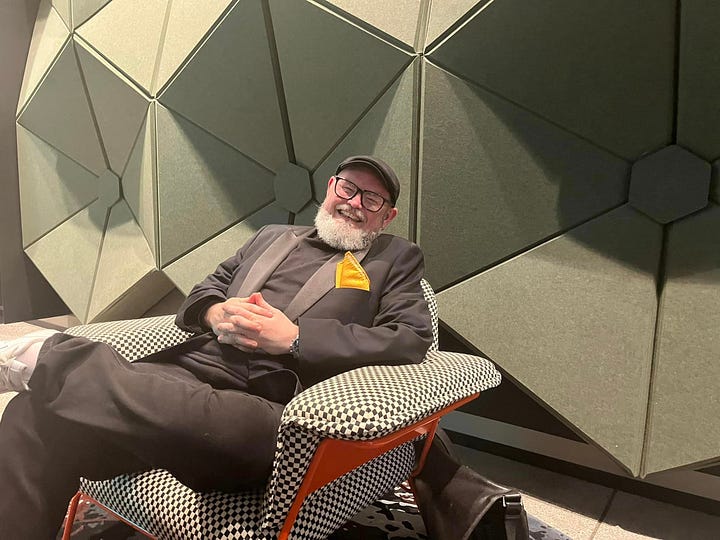

I found the man quite personable, friendly, and polite, and so far as I noticed not eating any babies. Bomber brought him up to speed on the fact that the Herald, RNZ, and Māori TV were streaming the debate.
Soon, others started to arrive, and Damien greeted them. There was much laughter as they joked about a high-profile court case and how a certain surgeon’s work rate had been boosted by his appetite for Meth. Sitting with Bomber’s daughter, I joked that she shouldn’t listen to them. She laughed.
Duncan Garner came down the stairs looking a bit surprised to see a group of people at this time of the evening before scuttling off like some ghost of TV news past.
I recognised Shane Te Pou among those arriving and went over and said hello. Then, as we waited outside the studio, I sat with Helmut, and we chatted about The Working Group, the debate, and the need to get beyond our bubbles.
Helmut said he felt most Kiwis were pretty centrist, although when I pointed out that over the last year, this government has shifted where that centre is beyond what many are comfortable with, he agreed.
Seymour arrived, and I grabbed a photo of he and Helmut before having a chat. David was pleasant enough, but there was none of the friendliness I’d found from Bomber, Damian, Shane, and Helmut - all charming men in their own way. We exchanged some words about what I do, about writers, but it felt like he was going through the motions - to be fair, he must meet an awful lot of people.
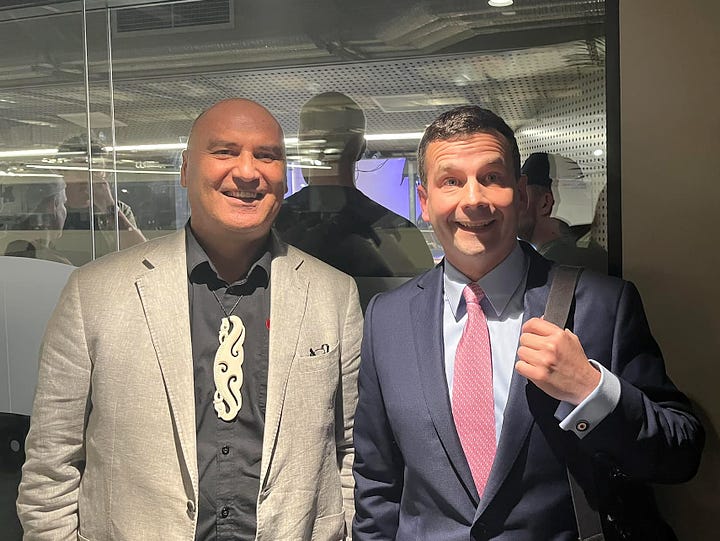
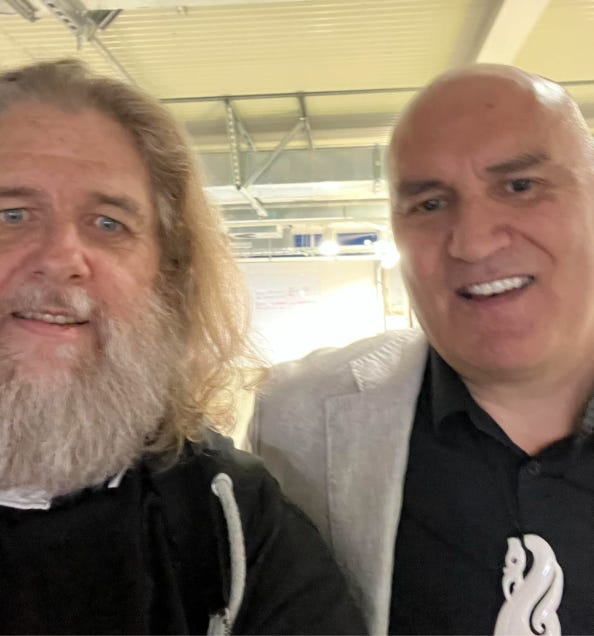
Bomber’s intro was great, calling it the Iwi vs Peewee debate special. As it began, I thought how odd it was to be watching with a group of completely engaged people laughing along. The mirth didn’t last long; we were all soon heads down, madly tapping at our devices.
Damien Grant began by complaining about his raw deal as an ACT supporter over the last two decades. Saying he expected things like legalised heroin, but all he got was pseudoephedrine. Which certainly made Seymour laugh.
Bomber introduced Seymour as Voldemort, which caused me to laugh quite loudly. David began by talking about equal rights as if those clamouring for them don’t have, at least, equal rights already.
Seymour spoke of how beautiful the Treaty is, which seemed oddly Trumpian, but he said the principles introduced over the last few decades are the problem. He claimed that we are identified by race first and foremost, not by being humans.
I thought to myself, “Really? How many of the things that happen in your day, your regular interactions, are primarily defined by race - I would suggest bugger all.”
Helmut was next. He talked about enjoying fiction as a child and how he’d just heard some. He said that things break down when people no longer believe that truth, fairness, and justice are enforced and that while Seymour might believe that Māori gave up their sovereignty, that was very much not the case. He talked about respectful coexistence, as supported by the treaty.
Bomber said that we have been taking a pragmatic approach to respecting the treaty for decades, so why change that now? Seymour rolled out his usual rhetoric about separatism not working and then went off on some anecdote about meeting someone who supported his charter schools.
Helmut offered evidence of what the treaty meant. It’s not that hard to understand, but he was patient in the face of what seemed to be tactics of time wasting and distraction from his opponent. He talked about mana being diminished and how absurd the idea was that 100,000 Maori offered up their sovereignty to a few missionaries and crown representatives.
Grant was next, and he talked about genuine past injustices against property rights. He asked Seymour whether he believed Maori had ceded their sovereignty. The Act man said ‘yes’, that Māori had done so because they were dealing with the only superpower of the time. To which Helmut repeatedly said, “Preposterous.” I have to say the whole superpower thing was a theory I hadn’t heard before.
Helmut discussed the fact that Kiwis support fairness and that there is no evidence, linguistically, logically, or historically, that sovereignty was ceded. In response, Seymour stated that his opponent agreed with him. He does this, antagonising people with simply inaccurate things to put them off.
Grant asked Helmut whether he thought everyone in NZ should have the same economic and political rights and whether Tangata Whenua should have special rights. Helmut clarified that this wasn’t about race but between two sovereign groups. No one wants to see people identified differently based on race; it’s about honouring a treaty between two groups.
Seymour talked about people coming from different regimes worldwide and that everyone had a grievance. In other words, Maoris were nothing special. He quoted his first speech in parliament ten years ago and said that he hadn’t changed his position, by way of explanation that this was not a stunt. Yeah, right.
I’d have a bit more sympathy for Seymour if that were the case, but for all his claims to the contrary, it still seems to me that this is politically motivated. It is all about growing ACT’s vote and not a response to any public demand to redefine the Treaty.
Seymour may well grow his vote, but by having an ugly debate that wouldn’t be a priority for most people, he risks reducing the overall centre-right vote—which I’m sure is the only thing holding Luxon back from supporting the Bill further.
Helmut said it wasn’t until the 70s and 80s that people started talking about the treaty, and in doing so, it was clear that we were not meeting our obligations. These concerns and doing something about them are essentially what Seymour wants to get rid of.
Final Words
Seymour said he wanted parliament to speak for those who want equal rights. He talked calmly, without emotion, like a robot, and finished in resounding silence.
Helmut said this journey to honour the treaty and co-exist is working; it’s already happening, so let’s keep going. That Kiwis believe in truth, justice, and fairness
Grant said he saw the principles around the treaty being used to extend things beyond what is in the treaty.
Bomber spoke of his daughter's enrollment in a Māori immersion class. Each year, they talked about which tribe they were from, but she was not from one. She’s there because Dad thought it was a good idea—and it is, a bloody good one.
He talked of hearing his daughter speak the mother tongue of his country when giving a karakia, his pride in watching her perform Kapa Haka, and how it made him feel in touch with this land.
I know that feeling. I see my kids on stage speaking for their dance crews, dropping words in te reo without even thinking about it, with better pronunciation than I’ll ever have. Like Bomber, I find it hard to think of anything that brings me more pride or makes me feel more connected to this land than seeing my kids using te reo simply as a matter of course. It is good.
Bomber talked about the three coalition leaders, Luxon, Seymour, and Peters, appearing on the screen at a Kapa Haka event and how the audience howled with rage in reaction. He said the next generation will not accept this - and I think he’s right.
I thought the debate was useful and interesting; I’m glad the Working Group held it and grateful to have had the opportunity to go along and watch.
Regarding a verdict, I thought Helmut spoke well, made sense, and brought passion, and you got the impression he had prepared well. On the other hand, Seymour didn’t seem that passionate; perhaps that’s just him, but he seemed to be falling back on things he’d said before, and I can’t imagine that many watching would’ve felt he had the better of things.
As for the hosts, I thought Damian Grant asked a couple of good questions and didn’t inject himself too much. I enjoyed Bomber’s contribution. His speech at the end was the only part of the debate that left me with strong feelings, other than frustration.
This is a very emotive subject I was surprised at how little Seymour brought to it in that regard. It’s hard to understand what he’s trying to achieve or why he is doing this.
Helmut on the other hand showed great mana, I’m sure many will have been impressed at how determinedly he spoke and impressed by the man.
You can find the full video below if you didn’t see it but would still like to. The debate begins twenty-two minutes in.
Today’s clip, The Night Comes Down, is from Queen I, the debut album. The video, however, was only released a few weeks ago. See what you think.

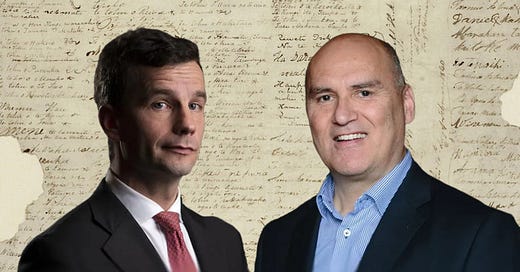


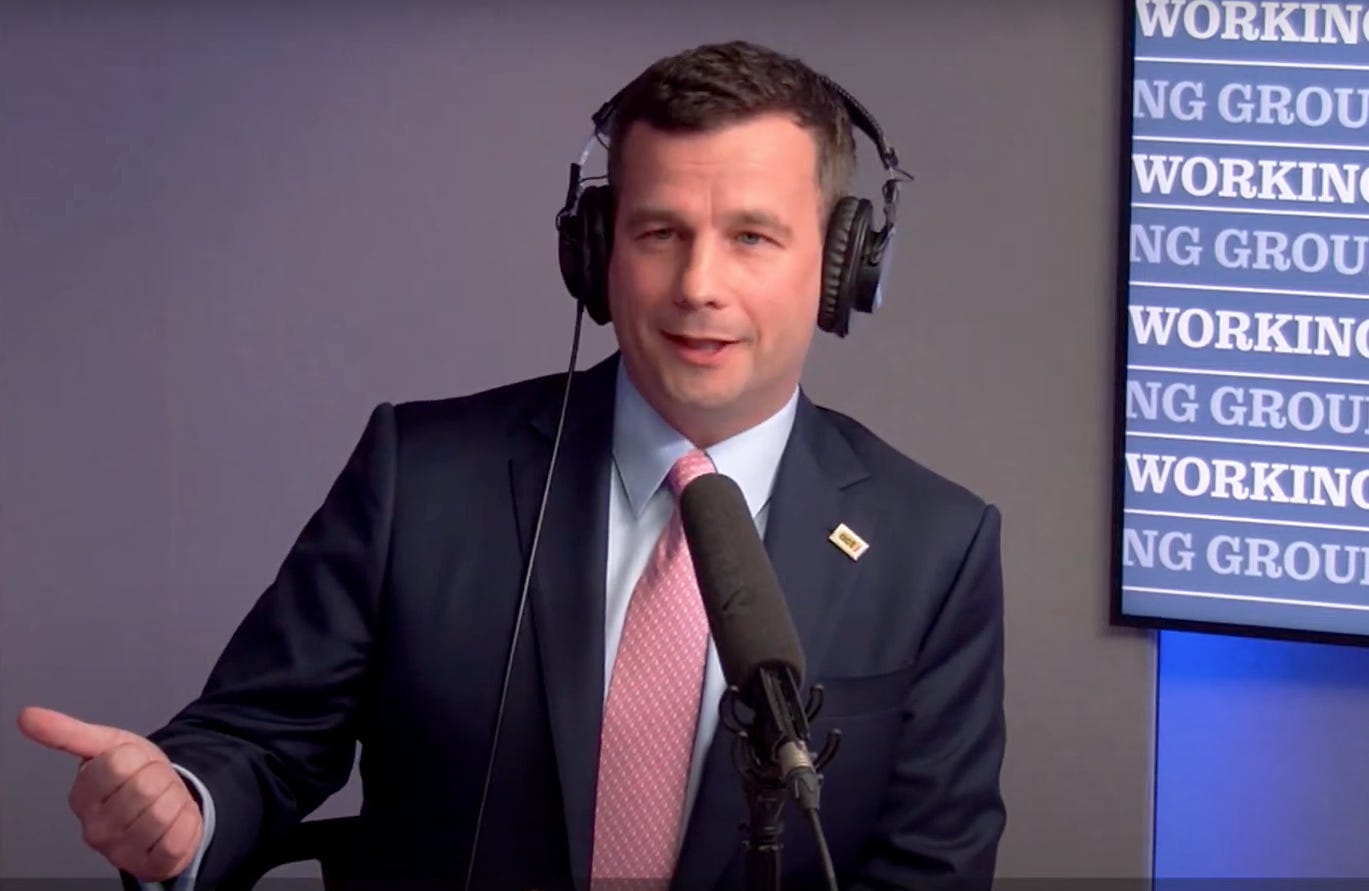
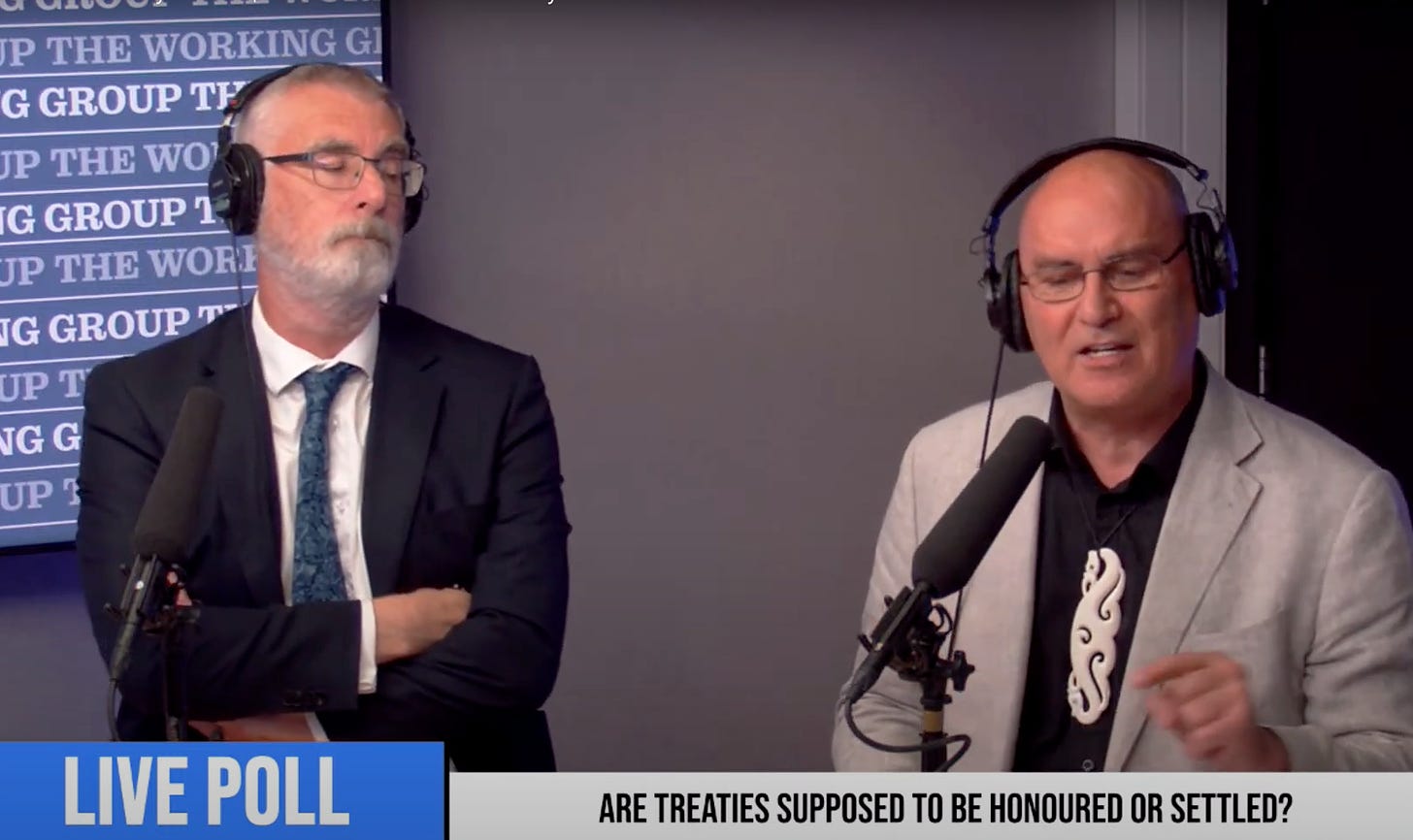
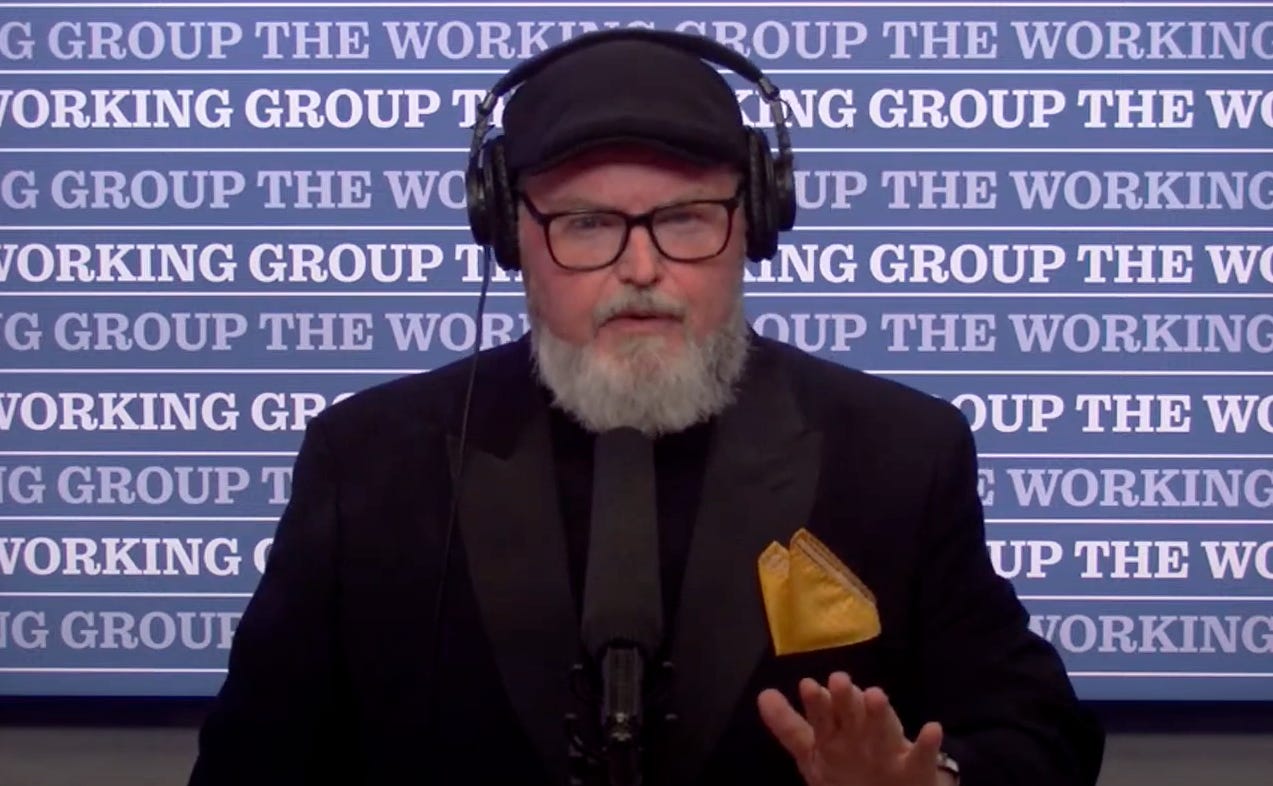

Thank you Nick. I am somewhat dubious around debates, not for any reason in particular, but someone like Seymour ala Trump just rely on click bait and tired tropes and well basically lie in the face of overwhelming evidence. Today it feels like the norm, to just blatantly lie and say it often and long enough that many just switch off to the real issues at hand. The summary as you described was quite telling. Seymour's lack of passion probably underlines his lack of any credible philosophical, emotive convictions, beyond the dollar and being, well a clown with it. Helmut speaking of his daughters connection with Te Reo really resonated with me and was deeply moved by those words. As a Samoan with mokopuna who whakapapa to this land I feel strong emotionally knowing they have a better opportunity to engage and experience Te Reo Maori more openly today then may be their forebears of past years. People like Helmut help the fight to keep it that way. It's a lovely sunny morning here in Ahuriri.Nga Mihi Aroha koutou.
I had to laugh at your comment - ‘I thought to myself, “Really? How many of the things that happen in your day, your regular interactions, are primarily defined by race - I would suggest bugger all.” I automatically read/thought ‘humans’ instead of race as my view is he/ACT pretty much view us all(bottom feeders) as productive units rather than people, which more or less speaks to his view of the treaty just being something standing in the way of money and productivity for the people he deems worthy of being seen as ‘human’ by him and his.